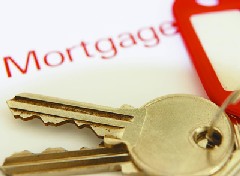Mortgage Borrowing

If you need to borrow funds to finance your homebuilding project, you may be surprised at how much cautious lender's criteria will affect your ability to borrow. Here, self build finance experts BuildStore explains how lenders will assess your ability and offer advice on how to ensure you secure the loan you need.
With the continued effects of the recession on the economy and the housing market in particular, it will come as no great surprise that mortgage lending in the UK remains suppressed. Finance for housebuilding - whether its developers, national housebuilders, or private individuals self-building, renovating or converting - has not been immune to this. However, the good news from BuildStore is that there remains a core group of mortgage lenders committed to the private self builder market, and there are a number of new lenders now entering the market, partnering with BuildStore, to provide this type of specialist mortgage finance.
With interest rates still at historically low levels, and the cost of borrowing relatively low (typically just below 6%), lending capacity is not so much of an issue. However, lenders have become increasingly cautious and it's the lender's criteria that have been impacted most.

There are tree factors that lenders will look at, which affect your ability to borrow for self-build, renovation or conversion projects:
Income & disposable earnings
- For the employed, most lenders limit their lending to around 3.75 times sole income, 3 times joint income, or 3.75 times first plus one times second gross annual income; for self-employed, it's based on Net Profit Before Tax, evidenced by two or three years accounts
- Lenders will also assess your ability to afford the mortgage, based on current and future commitments and outgoings
Loan-to-Value (LTV)
- In general, for a self-build, the amount you can borrow to purchase the land will be 75%of its current value, and for the build costs, again you can borrow around 75% of the end value. Funds are released in stages during the works on an arrears basis, i.e. after each stage completed, not exceeding 75% of the value at each stage. With BuildStore's Accelerator mortgage however, you can borrow up to 85% of the land and build costs. In addition, stage payments are released in advance of the each build stage, which helps cashflow.
- For a renovation or conversion project, again, typically 75% of the current value to purchase the project, then stage releases of up to 75% of the end value (released after each stage completed), and not exceeding 75% of the value at each stage. These project can be funded with an arrears or and advance (Accelerator) mortgages
- If you already own the land or the property to be renovated/converted, you can borrow against the value of this, meaning you can borrow more of the build costs.

The project itself
- Factors such as build type, construction method, materials, location, and schedule of costs will all impact which lenders will lend and how much they will lend.
Other factors such as credit history, time in employment / business etc will also affect your ability to borrow.
In order to give you the best chance of securing finance for self-building, BuildStore recommends:
- A review of your existing mortgage and other borrowings. It's a competitive market between lenders, and there are some great deals to be had. If you can reduce your current monthly mortgage payment, you'll have more disposable income towards your self-build application. You may also be able to consolidate other borrowing in a more cost-effective way. The finance advisers at BuildStore can help you conduct this review and find the best solutions.
- If you have a current property that you'll be selling before, during or after your building project, BuildStore is currently offering a free market appraisal of your current home, which gives you greater certainty of its saleability and value, which can bring clarity to your self-build application
- Check your credit report and repair any adverse credit history
- Save for the deposit - typically, you'll need 25% of the land a build costs, as well as covering fees. You'll also need to think about how your cashflow will work during the build phase, as you will need funds available to meet costs for labour and materials. BuildStore has set up a special saving account for homebuilders, with lots of extras and an attractive rate of interest.


